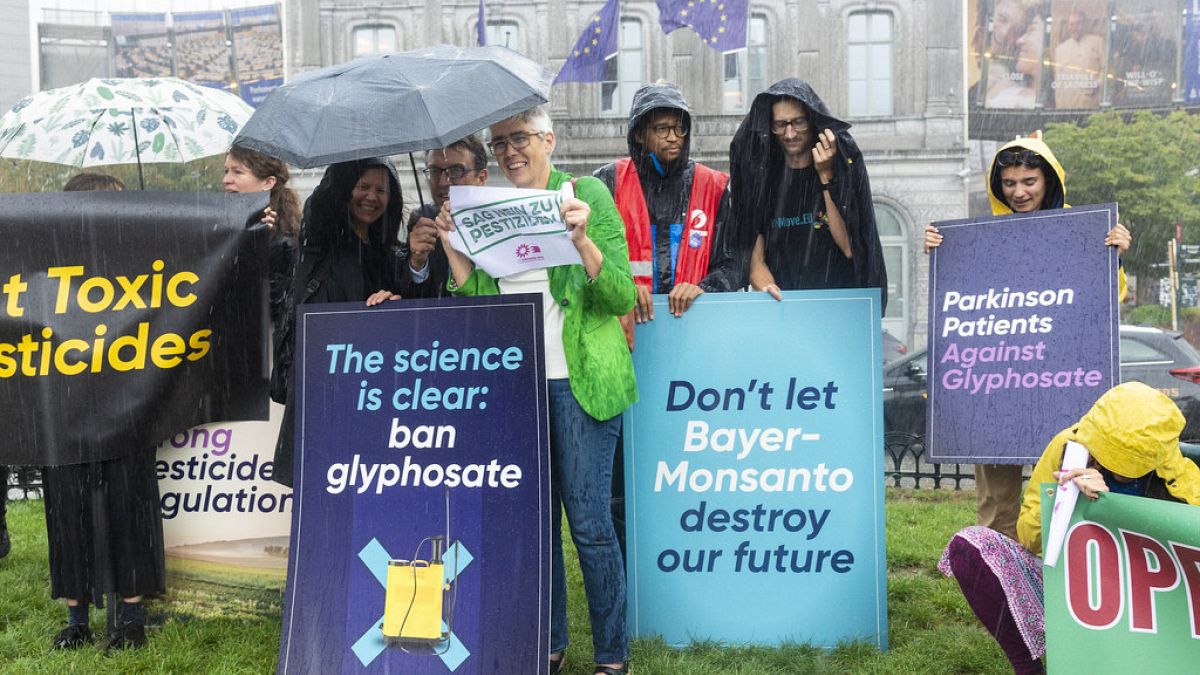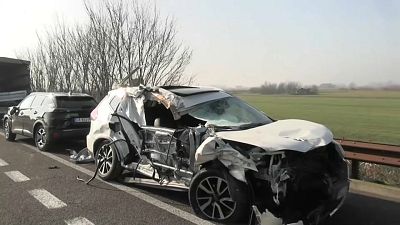Upcoming scientific evidence could reverse EU executive’s decision.
The European Commission is open to reassess its decision to renew authorisation of glyphosate for another ten years on the basis of fresh scientific research expected to be peer-reviewed this year, a spokesperson has told Euronews.
The EU executive renewed approval of the notorious weedkiller on 28 November last year, claiming the scientific assessment carried out by the European Chemicals Agency (ECHA) and the European Food Safety Authority (EFSA) “did not identify critical areas of concern”.
That decision was challenged on January 25 by six environmental NGOs led by Pesticide Action Network (PAN) Europe, who asked the commission to withdraw the decision arguing key scientific studies were overlooked during the EU’s appraisal.
In particular, the NGOs claimed that a study by Italy's Ramazzini Institute on leukaemia was not given due attention in the assessments by the commission.
Angeliki Lysimachou, PAN Europe’s Head of Science and Policy, claims the Ramazzini study reveals that “exposure to low levels of the EU-sold formulation Roundup Bioflow resulted in an increase in leukaemia deaths in rats, starting from younger age”.
Lysimachou told Euronews that “one of the numerous claims” the six NGOs made was that the EU executive reapproved glyphosate “despite EFSA and the Commission being aware of the [Ramazzini Institute’s] study”.
For Lysimachou, the study is particularly relevant since it’s “the only long-term study ever done on the representative formulation or any formulation [of glyphosate]”.
Stefan De Keersmaecker, the commission’s food safety spokesperson, told Euronews the EU executive, EFSA and ECHA “are aware” of the Ramazzini Institute’s study, but said that the results were neither peer-reviewed nor published at the time of the decision.
Daniele Mandrioli, director at the Bologna-based Ramazzini Institute’s Cancer Research Center, said the first results on leukaemia have now been published and are expected to be peer reviewed this year, although he could not predict when this might happen.
“If in the light of the new data, ECHA or EFSA confirm that glyphosate does no longer meet the approval criteria, the Commission will act immediately to withdraw the approval,” De Keersmaecker told Euronews.
Mandrioli noted that further evaluations are ongoing within the Ramazzini study, noting that the results will allow for assessment of the full carcinogenic potential of glyphosate.



